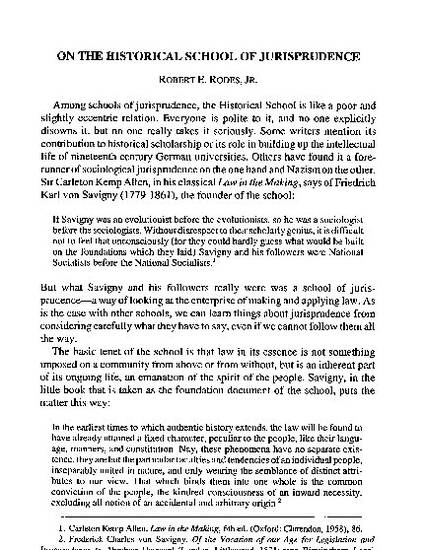
Legal theory has tended to treat the Historical School as a poor relation, but it has important contributions to make. Developed in opposition to the one-size-fits-all form of natural law that eventuated in the Code Napoleon, it attributes law to a Volksgeist, the spirit of a people, as developed in the peculiar historical experience of that people. The original German proponents of the school had trouble explaining the reception of Roman law in Germany, but despite the importation of technical elements from without, a people's laws are in fact part of their culture and of their spiritual heritage as these authors claimed. People have enough in common worldwide so that some elements appear in almost all legal systems (hence what the Romans called jus gentium) but one size does not fit all, and the laws of different peoples are subject to historical change as other aspects of their culture are. Deliberate legislative intervention is not always necessary, and not always sufficient to bring such changes about.
Available at: http://works.bepress.com/robert_rodes/3/

Reprinted with permission of American Journal of Jurisprudence.